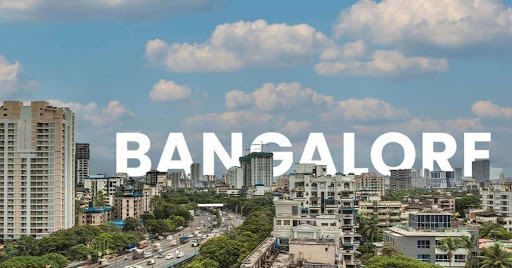The Karnataka government has approved a ₹125 crore interim grant to ensure a seamless start for Bengaluru’s five newly formed city corporations. This move comes after the Bruhat Bengaluru Mahanagara Palike (BBMP) was officially reorganized under the Greater Bengaluru Administration (GBA) Act, 2024, notified on September 2.
Also Read: Bengaluru’s Soaring Rentals: ₹70,000 for a 2BHK Sparks Online Outrage
How Will the Funds Be Distributed?
Each of the five corporations—Bengaluru West, South, North, East, and Central—will receive ₹25 crore. These funds are meant to cover immediate administrative and operational expenses during the transition phase.
According to GBA officials, this initial funding is designed to ensure that essential civic services continue without disruption as the corporations begin functioning independently.
Also Read: BBMP Targets ₹800 Crore in Pending Property Taxes; Launches Khata Processing Drive
Where Is the Money Coming From?
The ₹125 crore will be drawn from the ₹300 crore property tax pool currently held in BBMP’s Union Bank account. However, this arrangement is only temporary. Once the new tax collection system is set up, property tax revenue will directly flow into the respective accounts of the five corporations, each of which has already opened dedicated banking facilities.
GBA Chief Commissioner Maheshwar Rao clarified that this grant is not a handout but an advance, which will later be adjusted against future allocations when BBMP’s remaining reserves are divided. He stressed that the money must be used strictly for essential civic purposes to guarantee continuity in services.
Also Read: Understanding Government Taxes When Buying Properties in Bangalore: What You Need to Know
Why the Reorganisation?
The restructuring of BBMP into smaller corporations is aimed at decentralizing governance and making civic administration more efficient. The five corporations will work under the umbrella of the Greater Bengaluru Authority (GBA), alongside specialized agencies like Bengaluru Solid Waste Management Ltd (BSWML) and Bengaluru Smart Infrastructure Ltd (BSMILE).
This marks a major shift in how the city’s governance is managed, with more localized bodies focusing on region-specific challenges.
Ward Allocation: Who Handles What?
The newly formed corporations have been allocated wards based on geography, population density, and administrative convenience:
- West Bengaluru City Corporation: The largest of the five, it will manage 110 wards, covering 10 Assembly constituencies including Rajajinagar, Malleswaram, Basavanagudi, Mahalakshmi Layout, and parts of Yeshwanthpura.
- Central Bengaluru City Corporation: Will oversee 63 wards from six constituencies like CV Raman Nagar, Shanthi Nagar, Shivaji Nagar, and Chickpet.
- North Bengaluru City Corporation: Assigned 75 wards, including Yelahanka, Byatarayanapura, Hebbal, and parts of Dasarahalli and Pulakeshinagar.
- East Bengaluru City Corporation: Will govern 50 wards, mostly from KR Puram and Mahadevapura, with boundaries adjusted due to population pressures.
- South Bengaluru City Corporation: Expected to manage 90–100 wards, including BTM Layout, Jayanagar, Bommanahalli, Bengaluru South, RR Nagar, Padmanabhanagar, Mahadevapura, and Anekal.
Also Read: Bengaluru’s Yellow Line Namma Metro Set to Boost Affordable Real Estate Markets
What Lies Ahead for Bengaluru?
With this initial financial support, the five corporations are now set to operate independently. The transition is expected to improve governance by decentralizing decision-making, reducing administrative delays, and allowing for region-specific solutions.
The coming months will test how effectively these corporations utilize their funds and establish themselves as independent civic bodies.
The Karnataka government has approved a ₹125 crore interim grant to ensure a seamless start for Bengaluru’s five newly formed city corporations. This move comes after the Bruhat Bengaluru Mahanagara Palike (BBMP) was officially reorganized under the Greater Bengaluru Administration (GBA) Act, 2024, notified on September 2.
Also Read: Bengaluru’s Soaring Rentals: ₹70,000 for a 2BHK Sparks Online Outrage
How Will the Funds Be Distributed?
Each of the five corporations—Bengaluru West, South, North, East, and Central—will receive ₹25 crore. These funds are meant to cover immediate administrative and operational expenses during the transition phase.
According to GBA officials, this initial funding is designed to ensure that essential civic services continue without disruption as the corporations begin functioning independently.
Also Read: BBMP Targets ₹800 Crore in Pending Property Taxes; Launches Khata Processing Drive
Where Is the Money Coming From?
The ₹125 crore will be drawn from the ₹300 crore property tax pool currently held in BBMP’s Union Bank account. However, this arrangement is only temporary. Once the new tax collection system is set up, property tax revenue will directly flow into the respective accounts of the five corporations, each of which has already opened dedicated banking facilities.
GBA Chief Commissioner Maheshwar Rao clarified that this grant is not a handout but an advance, which will later be adjusted against future allocations when BBMP’s remaining reserves are divided. He stressed that the money must be used strictly for essential civic purposes to guarantee continuity in services.
Also Read: Understanding Government Taxes When Buying Properties in Bangalore: What You Need to Know
Why the Reorganisation?
The restructuring of BBMP into smaller corporations is aimed at decentralizing governance and making civic administration more efficient. The five corporations will work under the umbrella of the Greater Bengaluru Authority (GBA), alongside specialized agencies like Bengaluru Solid Waste Management Ltd (BSWML) and Bengaluru Smart Infrastructure Ltd (BSMILE).
This marks a major shift in how the city’s governance is managed, with more localized bodies focusing on region-specific challenges.
Ward Allocation: Who Handles What?
The newly formed corporations have been allocated wards based on geography, population density, and administrative convenience:
- West Bengaluru City Corporation: The largest of the five, it will manage 110 wards, covering 10 Assembly constituencies including Rajajinagar, Malleswaram, Basavanagudi, Mahalakshmi Layout, and parts of Yeshwanthpura.
- Central Bengaluru City Corporation: Will oversee 63 wards from six constituencies like CV Raman Nagar, Shanthi Nagar, Shivaji Nagar, and Chickpet.
- North Bengaluru City Corporation: Assigned 75 wards, including Yelahanka, Byatarayanapura, Hebbal, and parts of Dasarahalli and Pulakeshinagar.
- East Bengaluru City Corporation: Will govern 50 wards, mostly from KR Puram and Mahadevapura, with boundaries adjusted due to population pressures.
- South Bengaluru City Corporation: Expected to manage 90–100 wards, including BTM Layout, Jayanagar, Bommanahalli, Bengaluru South, RR Nagar, Padmanabhanagar, Mahadevapura, and Anekal.
Also Read: Bengaluru’s Yellow Line Namma Metro Set to Boost Affordable Real Estate Markets
What Lies Ahead for Bengaluru?
With this initial financial support, the five corporations are now set to operate independently. The transition is expected to improve governance by decentralizing decision-making, reducing administrative delays, and allowing for region-specific solutions.
The coming months will test how effectively these corporations utilize their funds and establish themselves as independent civic bodies.







